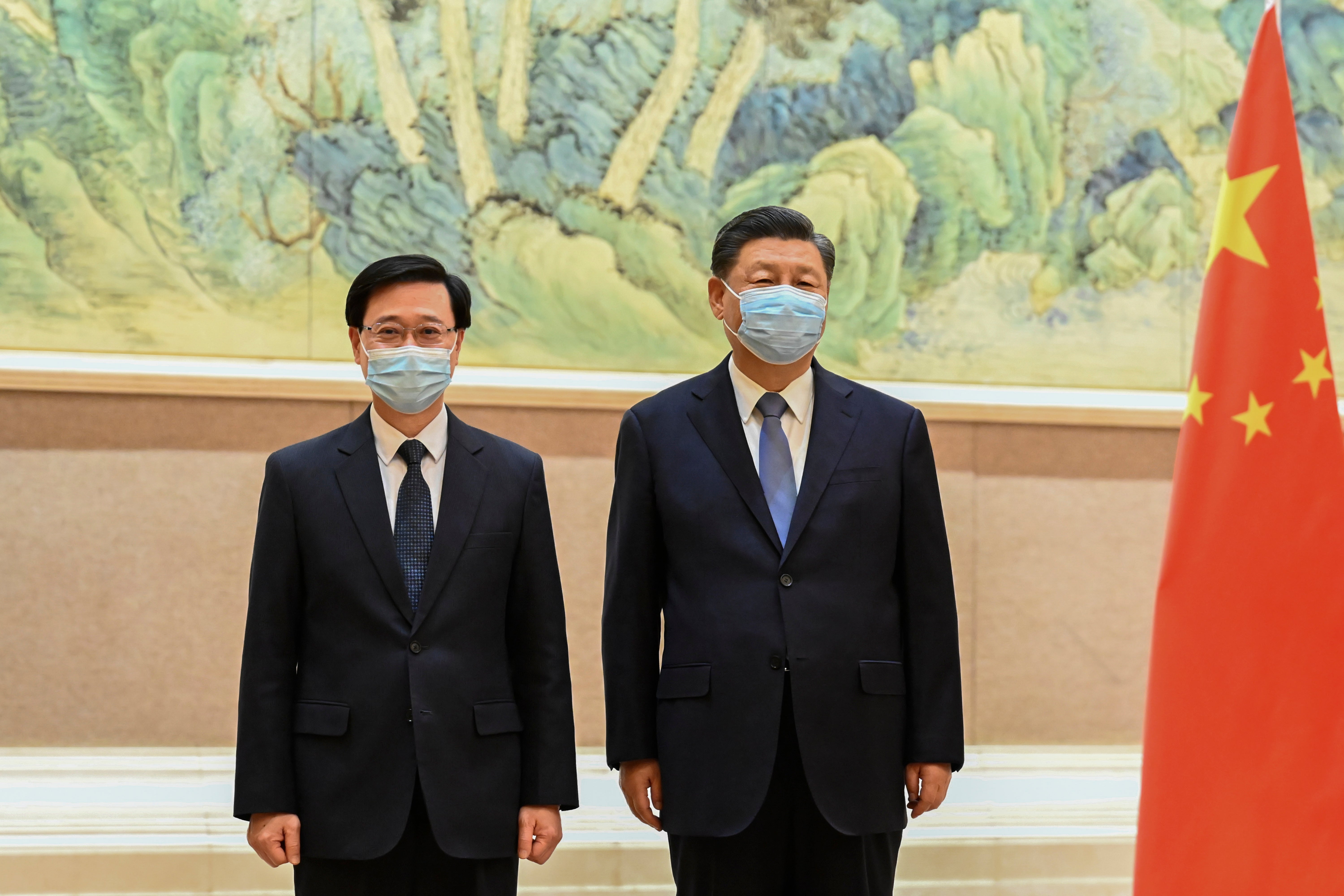Next Hong Kong leader says city must work harder at COVID-19
Hong Kong’s incoming chief executive, John Lee, says the city still has to work hard at controlling the coronavirus and boosting vaccination rates

Your support helps us to tell the story
From reproductive rights to climate change to Big Tech, The Independent is on the ground when the story is developing. Whether it's investigating the financials of Elon Musk's pro-Trump PAC or producing our latest documentary, 'The A Word', which shines a light on the American women fighting for reproductive rights, we know how important it is to parse out the facts from the messaging.
At such a critical moment in US history, we need reporters on the ground. Your donation allows us to keep sending journalists to speak to both sides of the story.
The Independent is trusted by Americans across the entire political spectrum. And unlike many other quality news outlets, we choose not to lock Americans out of our reporting and analysis with paywalls. We believe quality journalism should be available to everyone, paid for by those who can afford it.
Your support makes all the difference.Hong Kong’s incoming chief executive, John Lee, said Tuesday the city still has to work hard at controlling the coronavirus and boosting vaccination rates.
Lee, who returned home after meeting with Communist Party officials in Beijing, said Hong Kong needs to control the spread of COVID-19 to create favorable conditions for a resumption of regular travel with mainland China.
“We still have cases of infection, between 200 to 300 cases (daily), and vaccination rates for the second dose have yet to reach 90%,” Lee said to reporters after landing at Hong Kong's airport.
He said he explained to Chinese Premier Li Keqiang that there have been many requests to resume normal travel between the semi-autonomous city and the mainland.
The city faced its worst COVID-19 outbreak at the beginning of the year, driven largely by the highly transmissible omicron variant.
Over 1 million residents were infected during the outbreak, with daily cases exceeding 30,000 at the peak. Infections have since fallen to about 300 a day, according to authorities.
China has imposed tough entry restrictions on travelers from Hong Kong since the pandemic began, requiring them to complete mandatory quarantines that have ranged from seven days to several weeks. China also closed its borders to most international travel.
On Monday, Lee received his official letter of appointment in Beijing, a month before he is to take over the city's leadership. He also met with Chinese President Xi Jinping and other senior officials.
Lee’s appointment comes during a continuing political crackdown in Hong Kong nearly three years after anti-government protests rocked the city in 2019. He won in an uncontested election, garnering over 99% of all votes from an election committee comprised mostly of pro-Beijing members.
Critics say Beijing has tightened its grip over Hong Kong and rolled back freedoms with the imposition of a tough new national security law and changes to its electoral laws that prevent pro-democracy candidates from running for office.
Lee, a Beijing loyalist, is known for his support of the national security law, which outlaws subversion, secession, terrorism and foreign collusion to intervene in the city’s affairs. Over 150 people have been arrested under the law since it came into effect in June 2020.
“Since the implementation of the National Security Law in Hong Kong, Hong Kong has embarked on the right path," Chinese Foreign Ministry spokesperson Zhao Lijian said Tuesday. "We believe that the Pearl of the Orient will shine again.”
Prior to winning the election, Lee was the city’s No. 2 official. He spent most of his civil service career in the police force and later in the security bureau.
Lee is to be sworn in as Hong Kong’s chief executive on July 1, the 25th anniversary of Hong Kong’s handover from Britain to China.